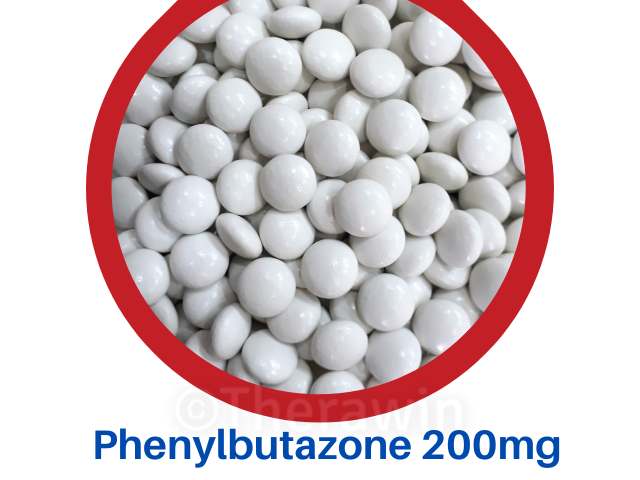Phenylbutazone, commonly known as “bute,” is a non-steroidal anti-inflammatory drug (NSAID) primarily used for its analgesic and anti-inflammatory properties. It is widely used in veterinary medicine, especially for horses, but it also has a history of use in humans. This article delves into the uses, side effects, and medications associated with Phenylbutazone Tablet.
Uses of Phenylbutazone
- Veterinary Applications
Phenylbutazone is predominantly used in veterinary medicine. It is effective in treating pain and inflammation associated with musculoskeletal disorders in horses, such as:
- Osteoarthritis: Reducing pain and improving mobility.
- Lameness: Alleviating discomfort in horses experiencing lameness due to various conditions.
- Colic: Occasionally used to manage pain associated with colic in horses.
- Human Medicine
Historically, phenylbutazone was used in humans to treat conditions such as:
- Rheumatoid Arthritis: Reducing inflammation and pain.
- Gout: Alleviating acute gout attacks.
- Other Inflammatory Conditions: Managing pain from other inflammatory disorders.
However, its use in humans has declined significantly due to safety concerns.
Side Effects of Phenylbutazone
While phenylbutazone can be effective, it also carries a risk of side effects. Some of the most common and serious side effects include:
Common Side Effects
- Gastrointestinal Issues: Nausea, vomiting, diarrhea, and ulcer formation.
- Drowsiness or Dizziness: Some users may experience sedation.
- Skin Reactions: Rashes or allergic reactions can occur.
Serious Side Effects
- Blood Disorders: Phenylbutazone can cause agranulocytosis (low white blood cell count) or aplastic anemia.
- Kidney Damage: Long-term use or high doses can lead to renal toxicity.
- Hepatic Effects: Potential liver damage or elevated liver enzymes.
Risks in Horses
In horses, side effects can include:
- Gastrointestinal Ulcers: Increased risk of ulcers in the digestive tract.
- Kidney Damage: Renal issues, particularly in dehydrated animals.
Medications Containing Phenylbutazone
Phenylbutazone is available in various formulations, including:
- Injectable Solutions: Commonly used in veterinary practices for rapid relief.
- Tablets: Available for both veterinary and historical human use, though not commonly prescribed anymore for people.
- Powder Formulations: Often used in animal feed for easier administration.
Alternatives to Phenylbutazone
Due to the risks associated with phenylbutazone, alternative NSAIDs are often preferred. These include:
- Carprofen: Commonly used in dogs and horses.
- Flunixin Meglumine: Used in veterinary medicine for pain and inflammation.
- Aspirin and Other NSAIDs: May be considered for certain conditions.
Conclusion
Phenylbutazone Tablet remains an important medication in veterinary medicine, particularly for managing pain and inflammation in horses. However, its use in humans has largely declined due to safety concerns and the availability of safer alternatives. Understanding the potential side effects and risks is crucial for both veterinarians and pet owners. Therawin Formulations is a leading manufacturer, supplier, and exporter of Phenylbutazone tablet manufacturer in India. Always consult a healthcare professional or veterinarian before starting any medication.
